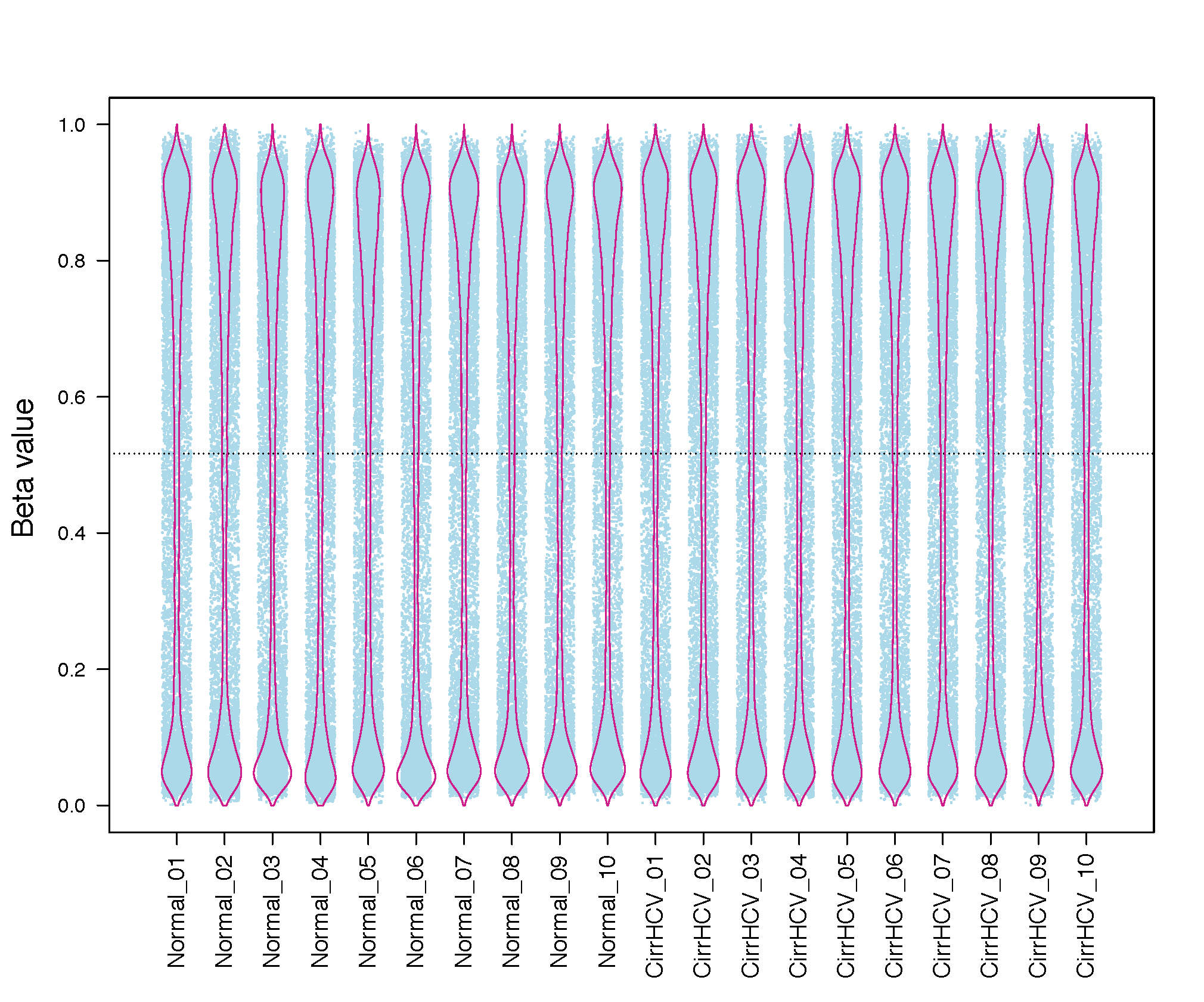12. beta_jitter_plot.py¶
12.1. Description¶
This program generates jitter plot (a.k.a. strip chart) and bean plot for each sample (column)
Example of input
CpG_ID Sample_01 Sample_02 Sample_03 Sample_04
cg_001 0.831035 0.878022 0.794427 0.880911
cg_002 0.249544 0.209949 0.234294 0.236680
cg_003 0.845065 0.843957 0.840184 0.824286
Notes
- User must install the beanplot R library.
- Please name your sample IDs (such as “Sample_01”, “Sample_02” in the above example) using only “letters” [a-z, A-Z], “numbers” [0-9], and “_”; and your sample ID must start with a letter.
12.2. Options¶
--version show program’s version number and exit -h, --help show this help message and exit -i INPUT_FILE, --input_file=INPUT_FILE Tab-separated data frame file containing beta values with the 1st row containing sample IDs and the 1st column containing CpG IDs. -f FRACTION, --fraction=FRACTION The fraction of total data points (CpGs) used to generate jitter plot. Decrease this number if the jitter plot is over-crowded. default=0.5 -o OUT_FILE, --output=OUT_FILE The prefix of the output file.
12.3. Input files (examples)¶
12.4. Command¶
$beta_jitterPlot.py -f 1 -i test_05_TwoGroup.tsv.gz -o Jitter
